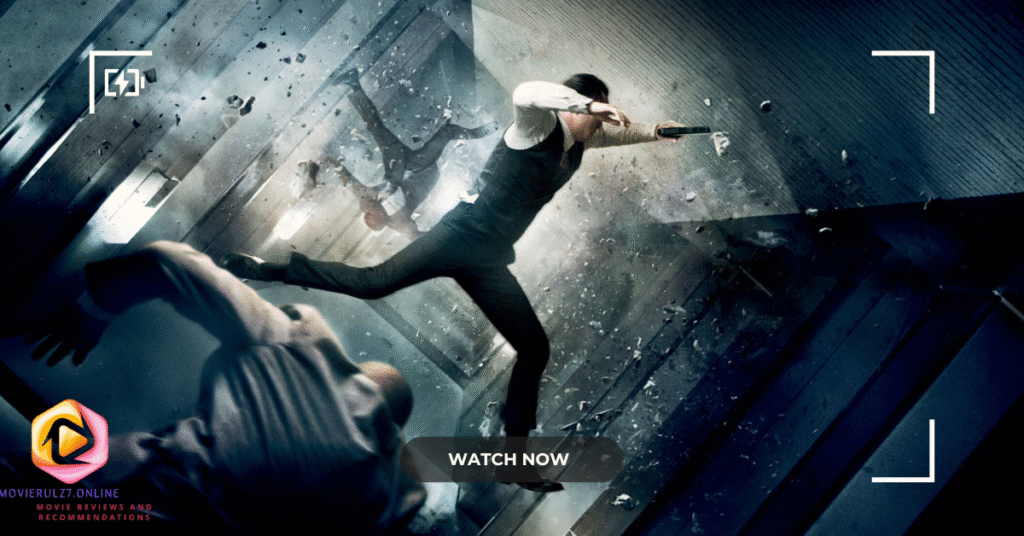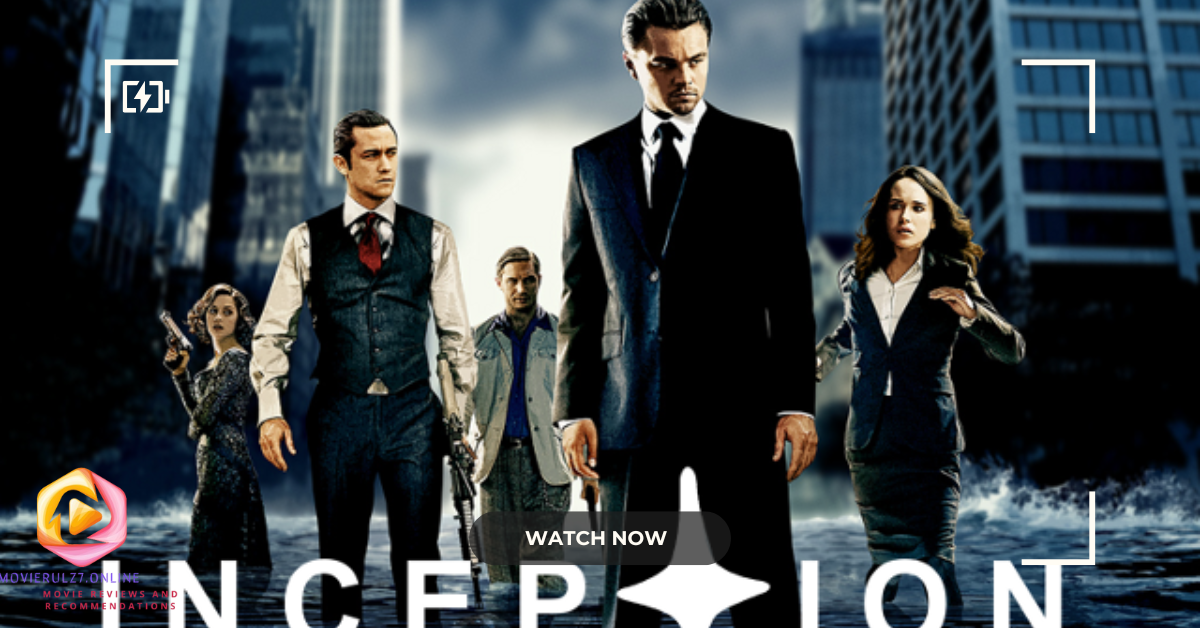When Christopher Nolan’s Inception was released in 2010, it quickly became a landmark film in modern cinema. With its original story, breathtaking visuals, and deep themes, the movie broke new ground in the science fiction and thriller genres. More than a decade later, Inception still stands strong as a masterpiece that challenges audiences to think, feel, and question reality itself.
In this review, we will explore why Inception is considered a masterpiece, breaking down its story, direction, performances, themes, and lasting influence on film and pop culture.
The Groundbreaking Storyline: Dream Within a Dream 🌀💭
At its core, Inception tells the story of Dom Cobb (Leonardo DiCaprio), a skilled thief who steals secrets from people’s subconscious while they are dreaming. The plot is centered on a nearly impossible job: instead of stealing an idea, Cobb and his team must plant an idea in someone’s mind — a process called “inception.”
What makes Inception unique is its layered narrative. The film takes place in multiple dream levels nested within each other, each with its own rules and dangers. This “dream within a dream” structure creates a complex puzzle for the audience. But Nolan smartly manages this complexity by carefully explaining the rules of dream logic and using visual cues to help viewers follow along.
The story explores trust, guilt, memory, and identity, making the film more than just a sci-fi thriller — it’s also an emotional journey for Cobb, who struggles with the memories of his lost wife and his own reality.
Nolan’s Direction: Crafting a Visually Stunning Experience 🎥✨
Christopher Nolan’s direction is one of the main reasons Inception shines. Nolan is known for blending practical effects with CGI to create realistic yet extraordinary scenes, and Inception is no exception.
One of the most memorable scenes is the rotating hallway fight between Joseph Gordon-Levitt’s character and the bad guys. To create this effect, Nolan built a real rotating corridor on a giant rig — no green screens involved. This choice added a raw, physical feel to the action.
Another iconic visual is the city bending and folding over itself during a dream sequence. This stunning imagery not only amazes the eyes but also reflects the mind-bending theme of the film.
Hans Zimmer’s score deserves a special mention as well. His powerful, haunting music perfectly matches the film’s mood, creating tension and emotional depth throughout.

Strong Performances by the Cast 🎭🌟
The film’s success also rests on the shoulders of its talented cast. Leonardo DiCaprio delivers a deeply emotional performance as Dom Cobb, a man haunted by grief and guilt. His struggle to separate dreams from reality gives the movie an emotional core.
Joseph Gordon-Levitt, Ellen Page, Tom Hardy, Ken Watanabe, and Marion Cotillard also shine in their roles, adding layers to the story. Marion Cotillard’s portrayal of Mal, Cobb’s wife, is especially powerful — she represents Cobb’s past and inner torment, blurring the lines between reality and dream.
Themes That Make You Think Deeply 🧩❤️
Inception is filled with themes that invite viewers to think about the nature of reality, memory, and the power of ideas. The film asks: What is real? How much do our memories shape our world? Can an idea change a person’s life?
The concept of dreams as a metaphor for our subconscious mind adds philosophical depth. The movie also explores guilt, loss, and the human desire to escape pain.
Cobb’s journey to “let go” of his painful memories and accept reality is an emotional theme that many viewers relate to. The film blends this personal story with a high-stakes heist, balancing heart and mind.
The Ambiguous Ending: A Topic for Endless Debate 🔄❓
One of the most famous parts of Inception is its ending. The movie closes on Cobb spinning his totem — a small spinning top used to check if he’s dreaming. The camera cuts to black before showing if the top falls or keeps spinning, leaving viewers unsure if Cobb is still dreaming.
This open ending sparked endless discussion and theories. It forces the audience to decide for themselves what is real, highlighting one of the film’s core themes. This bold choice is rare in Hollywood blockbusters and adds to Inception’s lasting appeal.
Critical Reception and Awards 🏆🌍
Inception was a critical and commercial success. It grossed over $830 million worldwide and won four Academy Awards, including:
- Best Cinematography
- Best Visual Effects
- Best Sound Editing
- Best Sound Mixing
It was also nominated for Best Picture and Best Original Screenplay, an impressive feat for a sci-fi film.
The movie’s success encouraged studios to take more risks with original, complex stories rather than relying solely on sequels and remakes.
How Inception Changed Modern Cinema 🎬🚀
Since its release, Inception has influenced countless films and TV shows. It showed that smart, thought-provoking movies could still be huge blockbusters. The mix of action, emotion, and brainy ideas opened doors for other high-concept films.
It also inspired directors and writers to explore themes of reality and dreams in new ways. Films like Interstellar (also by Nolan), Looper, and Tenet owe a creative debt to Inception.
Final Thoughts: Why Inception Is a Must-Watch Masterpiece 🎬🌟
Inception is a rare film that combines intellectual challenge, emotional storytelling, and spectacular visuals. Christopher Nolan’s careful direction, a talented cast, and a gripping script all work together to create a movie that’s as entertaining as it is thought-provoking.
The film invites viewers to question what is real, understand the power of memory, and reflect on their own lives. It’s a cinematic experience that stays with you long after the credits roll.
For anyone who loves movies that make you think while thrilling you, Inception remains one of the greatest masterpieces of the 21st century.
